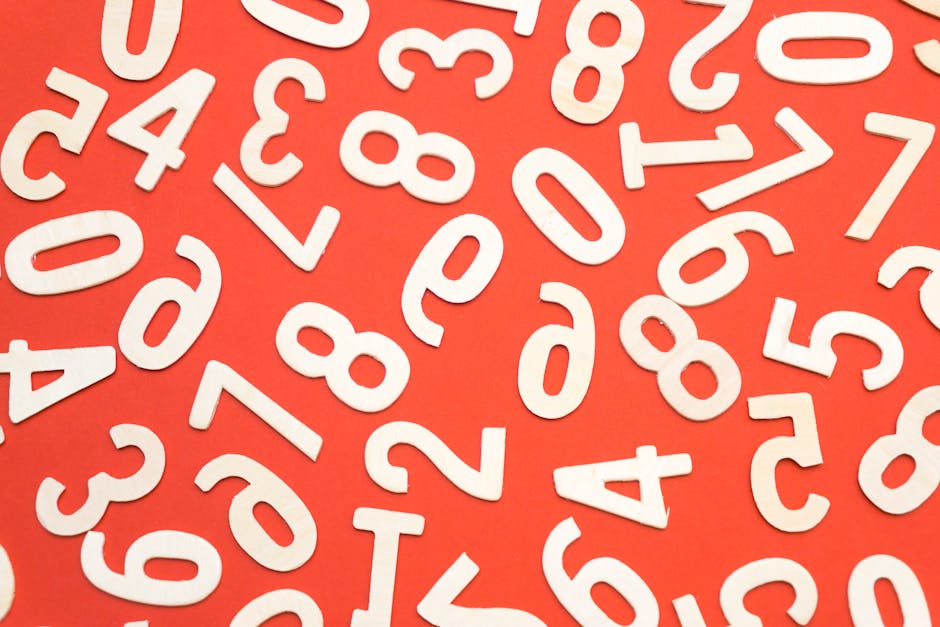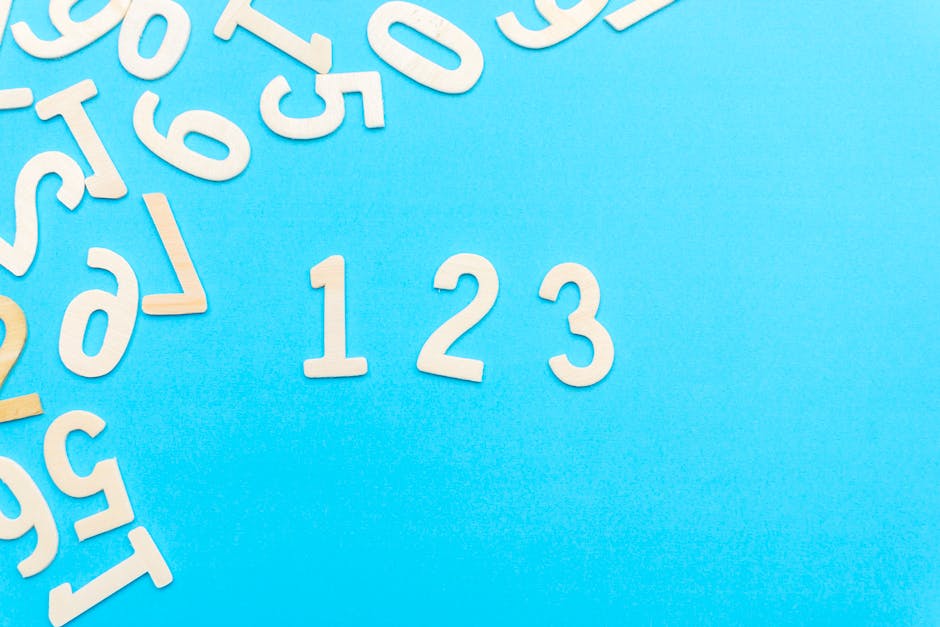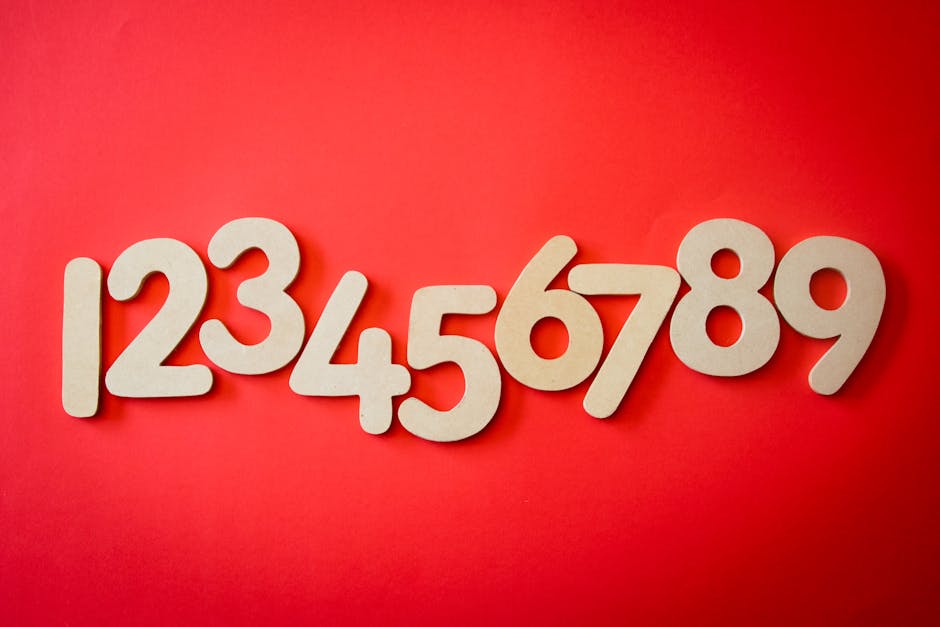Poems about numbers dance between logic and imagination. These poems explore the essence of numbers, transforming them from mere digits into captivating narratives. From the endlessness of infinity to the delicate balance of binary code, numbers emerge as powerful symbols, inspiring verses that resonate with both the analytical and emotional aspects of the human experience.
Each number carries its own unique rhythm and melody, waiting to be woven into a symphony of words. Poets delve into the intricate patterns and relationships between numbers, revealing their interconnectedness in the fabric of reality.
Through poems, numbers transcend their practical applications and become gateways into vast philosophical and spiritual realms. These poems celebrate the beauty of mathematics, reminding us of the elegance and order that underpin the complexities of the cosmos.

Magnificent – 37 Poems About Numbers
Counting Stars
In the velvet blackness of night’s embrace
A million twinkling lights, a celestial race
Each one a world, a mystery to share
A numeral unknown, beyond compare
Zero Hour
In the stillness of the midnight air
A single digit, devoid of care
No value, no weight, no form to hold
A void, a null, a story untold
The Number Seven
Lucky seven, mystic and bright
Completeness in its circular light
A perfection, a rhythm so fine
In nature, art, and the fabric divine
Prime Suspect
23, a number odd and rare
A prime suspect, with no pair to share
A solitary figure, hard to define
Unfactorable, a math problem divine
Square One
A new beginning, a fresh slate
A square one, where love creates
A clean canvas, awaiting art
A chance to start, a brand new heart
Fibonacci’s Dream
1, 1, 2, 3, 5, 8, 13, and on
A sequence hidden, yet to be known
Nature’s code, a pattern so grand
A math poem, written by the land
The Power of Three
Three dimensions, three aspects of time
Past, present, and future’s rhyme
Three sides to a story, three points of view
A triad, a trinity, forever true
Numbers Game
Rational thoughts, irrational fears
A game of numbers, through all the years
A code to crack, a puzzle to solve
A mathematician’s quest, an endless role
The Infinite
A never-ending, boundless sea
A numeral without, a figure to be
Infinite possibilities, infinite might
A concept grand, yet hard to excite
Mathemagica
π, e, and the golden ratio too
Magical numbers, in a world anew
Irrational, yet precise and so grand
A mathemagician’s, wondrous land
A Thousand Words
A picture paints, a thousand words tell
A numerical value, for a story to sell
A verbal image, a numerical weight
A thousand words, in a single digit’s fate
Enjoying these poems? You can also create your own poems with our Advanced AI Poem Generator.
Thirty Seven
In digits, a number is born,
A symbol of secrets untorn,
A code to unlock the mind,
A pathway to leave behind.
Forty Three
The wind whispers secrets sweet,
As forty three whispers greet,
The number holds a hidden might,
A power to change the light.
Sixteen Shores
Sixteen shores of golden sand,
Where memories are made to stand,
The waves caress the feet so fine,
As thirty two etches the line.
Dwelve
Twelve angels hold the tree,
Of life, as souls whisper to thee,
A number that’s divine and near,
A guidance that banishes fear.
Eighty Four
The clock strikes eighty four,
A rhythm that echoes the floor,
A beat that echoes the heart’s desire,
As moments become a burning fire.
Twenty One
Twenty one balloons take flight,
A rainbow of joy and delight,
A celebration of life’s reprieve,
As laughter echoes, wild and free.
Forty Nine
The river’s flow, a rhyme divine,
Forty nine miles of winding vine,
A pathway that winds and unwinds,
As the heart beats with love’s design.
Seven Seas
Seven seas that meet the shore,
A meeting of secrets galore,
The tides that ebb and flow so free,
A rhythm that echoes humanity.
Five Fingers
Five fingers grasp the pen,
As words begin to flow, then spin,
A dance of thoughts, a symphony,
A language that sets the heart free.
Sixty Six
Sixty six seconds of silence keep,
A pause that echoes the heart’s deep,
A moment’s pause to reflect and see,
A new path opening for you and me.
Eleven O’Clock
Eleven o’clock, the time is near,
The hour of dreams, the hour of fear,
A moment that tests the heart’s might,
A challenge to seize the night.
Twenty Nine
Twenty nine petals unfold,
A rose that blooms, young and old,
A symbol of love’s pure might,
A flower that blooms in endless night.
Seventy Seven
Seventy seven sunsets fade,
A trail of memories, a path displayed,
A journey that winds and unwinds,
As the heart beats with love’s design.
Nineteen Wishes
Nineteen wishes take to the air,
A trail of dreams, a trail to share,
A journey that winds and unwinds,
As the heart beats with love’s design.
Thirty Four
Thirty four stars that twinkle bright,
A celestial show, a wondrous sight,
A dance of lights, a symphony divine,
A language that speaks directly to the heart’s shrine.
The Melody of Metro
In the underground hymn of steel and stone
Where rhythms reign and echoes moan
Thirty-seven trains a day converge
A symphony of humans merge
Like cogs in machines, we turn and sway
A mechanical ballet in gray
The city’s heartbeat, fast and slow
As strangers meet and miles grow
Six in the City
Crisp morning air, a symphony plays
Six A.M. and streets awake in haze
The sixth sense of life begins anew
As sunrise dance with dew
Six stories high, skyscrapers reveal
A city’s canvas, vibrant and real
Six strings of fate, life’s chords we play
As morning dew gives way to gray
One
In the beginning, there was one
A singular start of all that’s begun
United in its solitary state
No need for another to resonate
Two
Two is a pair, a duet, a match
A couple holding hands, a loving latch
Two sides of a coin, two minds of a thought
Two’s company, for the rest, just not
Three
Three is a triad of harmony
A three-part song, a trinity
Three’s a charm, a lucky number too
Three’s the magic that whispers through
Four
Four is a square, a foursome’s game
Four seasons in a year’s frame
Four directions, a crossroad’s call
Four is solid, standing tall
Five
Five senses that guide us through life
Five days of work, then two days of strife
Five fingers hold tight to life’s thread
Five is alive, more than dead
Six
Six is a hexagon’s dance
A half-dozen, a sweet romance
Six points on a star’s ascent
Six shows us the cosmic extent
Seven
Seven is a wanderer’s guide
A week long, filled with work and pride
Seven seas, seven wonders, too
Seven’s a lucky charm, me and you
Eight
Eight is the wheels on a cart
An octopus’ arms, a work of art
Eight notes in a scale’s circuit
Eight is a cycle, continuous
Nine
Nine is the stars in a night’s array
A cat’s nine lives, a stray’s rebirth each day
Nine months in a mother’s embrace
Nine is the end of a cycle’s grace
Ten
Ten is a tally, a scoreboard’s count
Ten fingers that rise and wave about
Ten is a decade, a lustrum’s part
Ten is the sum of a whole heart
Best Popular Poems About the Fascinating World of Numbers
“Pi” by Kate Bush
This poem is a musical and lyrical exploration of the mathematical constant pi. Kate Bush’s words weave a hypnotic spell, capturing the infinite and irrational nature of pi. The poem begins with a slow, pulsing rhythm, gradually building into a swirl of numbers and sounds that evoke the endless digits of pi.
“The Number Pi” by Daniel Tammet
In this poem, Daniel Tammet, a mathematician and autistic savant, pours his heart and soul into celebrating the beauty of pi. With a deep understanding of the mathematical concept, Tammet crafts a poetic tribute that resonates with the musicality of numbers. His words dance with the infinite sequence, revealing the magic that lies within.
“One, Two, Three” by Wisława Szymborska
Nobel laureate Wisława Szymborska’s poem is a witty and insightful exploration of the world of numbers. She delves into the significance of each number, from the singular “one” to the multiplicity of “three,” revealing the complexities and contradictions that underlie our relationship with numerals.
“Counting” by Rachel Hadas
Rachel Hadas’s poem is a poignant meditation on the role of numbers in our lives. She reflects on the way we use numbers to make sense of the world, to impose order on chaos, and to connect with others. Through her words, Hadas reveals the beauty and power of counting, from the mundane to the sublime.
“Zero” by Robert Creeley
Robert Creeley’s poem is a profound exploration of the concept of zero. He delves into the emptiness and fullness of this numeral, revealing its paradoxical nature. Creeley’s words evoke the Nothingness that underlies all existence, inviting the reader to contemplate the significance of zero in our pursuit of meaning.
“Five” by Amy Gerstler
Amy Gerstler’s poem is a whimsical and humorous tribute to the number five. She examines the way this numeral appears in our daily lives, from the five fingers on a hand to the five senses that guide us. Gerstler’s words are a celebration of the playful and the mundane, revealing the hidden patterns that govern our world.
“Numbers” by Mina Loy
Mina Loy’s poem is a surrealist exploration of the world of numbers. She juxtaposes the rational and the irrational, the concrete and the abstract, to reveal the strange beauty that underlies the numerical realm. Loy’s words are a dreamlike journey into the heart of mathematics, where the boundaries between reality and fantasy blur.
“The Counting” by Yehuda Amichai
Yehuda Amichai’s poem is a powerful exploration of the role of numbers in human experience. He reflects on the way we use counting to make sense of the world, to impose order on chaos, and to connect with others. Through his words, Amichai reveals the deep connection between counting and humanity, from the biblical to the contemporary.
“Three Times Three” by Wendy Cope
Wendy Cope’s poem is a wry and humorous exploration of the concept of multiplication. She examines the way numbers interact and intertwine, revealing the hidden patterns that govern our world. Cope’s words are a tribute to the beauty of arithmetic, a celebration of the intricate dance of numbers.
“Mathematics” by D.J. Enright
D.J. Enright’s poem is a profound meditation on the nature of mathematics. He reflects on the way numbers underlie all existence, from the rhythms of nature to the rhythms of human experience. Enright’s words are a celebration of the beauty and power of mathematics, revealing its capacity to both describe and transcend the world around us.
The Fascination of Numbers in Poetry
Numbers have always been a source of inspiration for poets. They are used to convey a sense of rhythm, structure, and meaning in poetry. Poems about numbers often explore the relationship between numerals and the human experience, using mathematical concepts as metaphors for emotions, ideas, and concepts.
The Use of Numbers in Poetic Form
In poetry, numbers are used to create a sense of structure and rhythm. For example, a sonnet has 14 lines, a haiku has 17 syllables, and a limerick has five lines with a specific rhyme scheme. These numerical constraints force poets to be creative with their language, using a limited number of words to express complex ideas.
Numbers as Metaphors in Poetry
Poets often use numbers as metaphors to convey emotions, ideas, and concepts. For example, the number three can represent the Holy Trinity, the number seven can symbolize luck or completeness, and the number 13 can represent bad luck or rebellion. These numerical metaphors add depth and meaning to the poetry, allowing poets to express complex ideas in a simple and elegant way.
The Symbolism of Numbers in Poetry
In addition to being used as metaphors, numbers also have symbolic meanings in poetry. For example, the number one can represent unity, the number two can symbolize division or contrast, and the number four can represent stability or balance. These symbolic meanings add layers of meaning to the poetry, allowing poets to express complex ideas and emotions through the use of simple numbers.
The Use of Numerology in Poetry
Numerology is the study of the meaning and symbolism of numbers. Poets often use numerology to add depth and meaning to their poetry. For example, a poet might use the number 44 in a poem to represent the idea of balance and harmony, as the number 4 is often associated with stability and the number 44 is considered a master number in numerology.
The Role of Numbers in Concrete Poetry
Concrete poetry is a type of poetry that uses visual elements to convey meaning. In concrete poetry, numbers are often used as visual elements, creating a sense of structure and rhythm on the page. For example, a concrete poem might use the number 5 in the shape of a star to convey the idea of freedom or the number 8 in the shape of a snowflake to convey the idea of uniqueness.
The Use of Numbers in Found Poetry
Found poetry is a type of poetry that uses existing text as its source material. In found poetry, numbers are often used as a structural element, creating a sense of rhythm and meaning. For example, a found poem might use a list of numbers from a newspaper article to convey the idea of chaos or disorder.
The Importance of Numbers in Performance Poetry
Performance poetry is a type of poetry that is performed for an audience. In performance poetry, numbers are often used to create a sense of rhythm and structure. For example, a performance poet might use a repetitive beat or a specific number of syllables in each line to create a hypnotic effect on the audience.
In conclusion, numbers play a significant role in poetry. They are used to create a sense of structure and rhythm, to convey metaphors and symbolism, and to add depth and meaning to the poetry. Whether it’s through poetic form, metaphor, symbolism, numerology, concrete poetry, found poetry, or performance poetry, numbers are an essential tool for poets to express their ideas and emotions.


